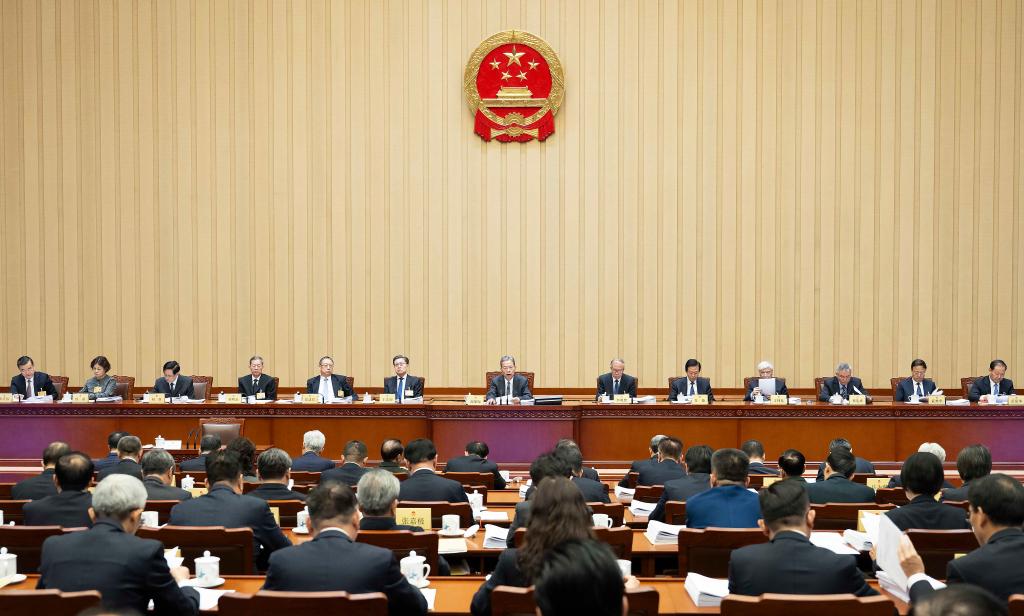
BEIJING - China's top legislature on Saturday started a regular session to review a raft of bills including law drafts and reports.
Zhao Leji, chairman of the 14th National People's Congress (NPC) Standing Committee, presided over the first plenary meeting of the committee's 13th session.
Lawmakers reviewed a draft value-added tax law, a draft national park law, a draft law on the publicity and education regarding the rule of law, and a draft private sector promotion law.
ALSO READ: NPC stresses importance of modernization
They deliberated a draft amendment to the law on people's congress deputies, a draft amendment to the supervision law, a draft revision to science and technology popularization law, a draft revision to the anti-unfair competition law, and a draft revision to the fisheries law.
Lawmakers also reviewed a draft decision on convening the third session of the 14th NPC, reports on the handling of the suggestions, criticisms and comments submitted by lawmakers at the second session of the 14th NPC, a deputy qualification report, and personnel-related bills, among others.
The lawmakers are also deliberating a draft law that would strengthen the safety management of hazardous chemicals throughout the entire industrial chain and in all related links.
Stressing the prioritization of safety, it clarifies the division of work among departments responsible for the sector's supervision and administration, and requires regular risk assessment and dynamic oversight in chemical industrial parks.
READ MORE: Lawmakers approve plan for China's development in 2024
The draft also stipulates that enterprises that produce or store hazardous chemicals should strengthen their entire safety management processes, that individuals are forbidden from purchasing highly toxic or explosive chemicals, and that online sales or purchases of such chemicals are prohibited.


